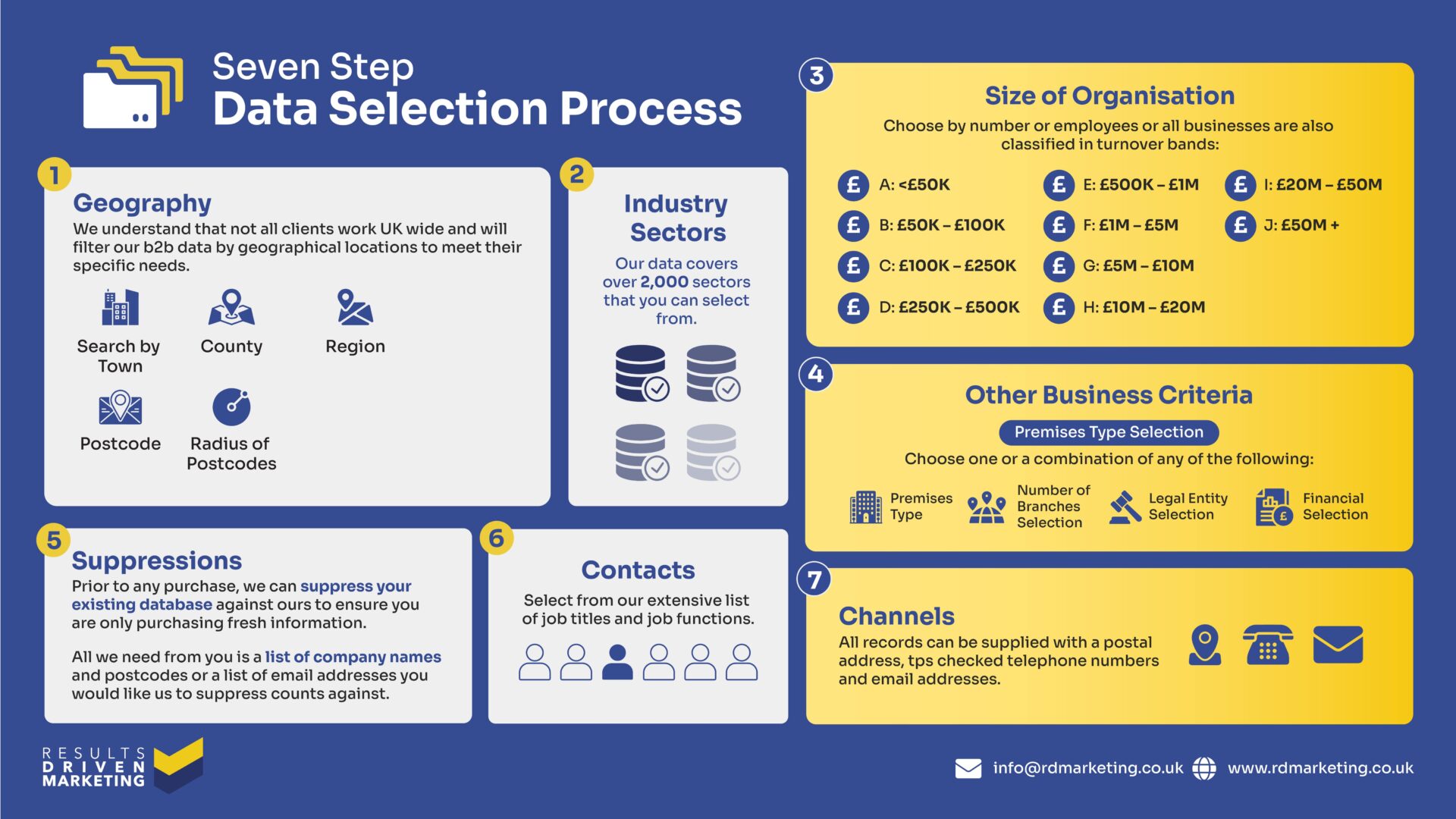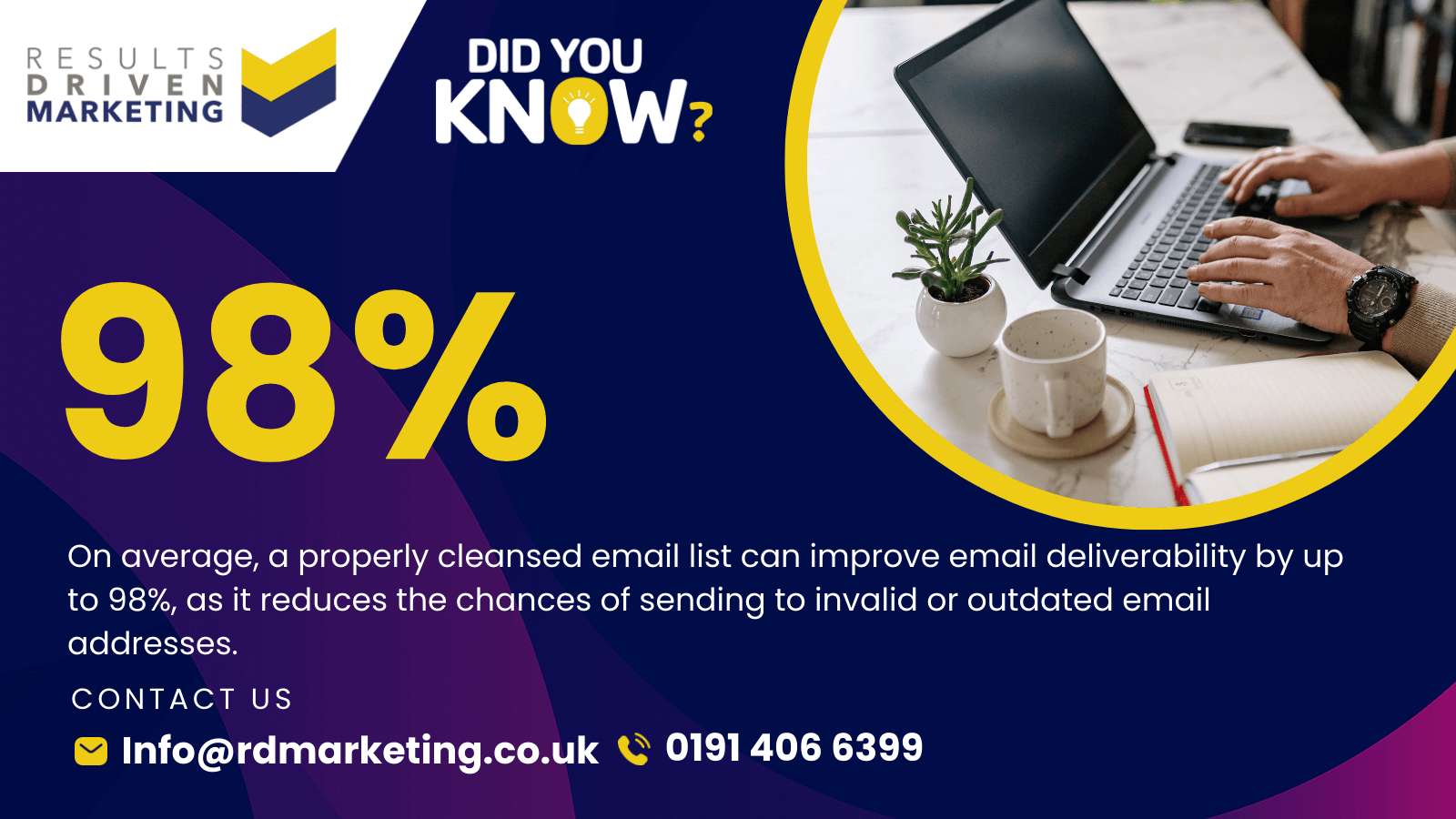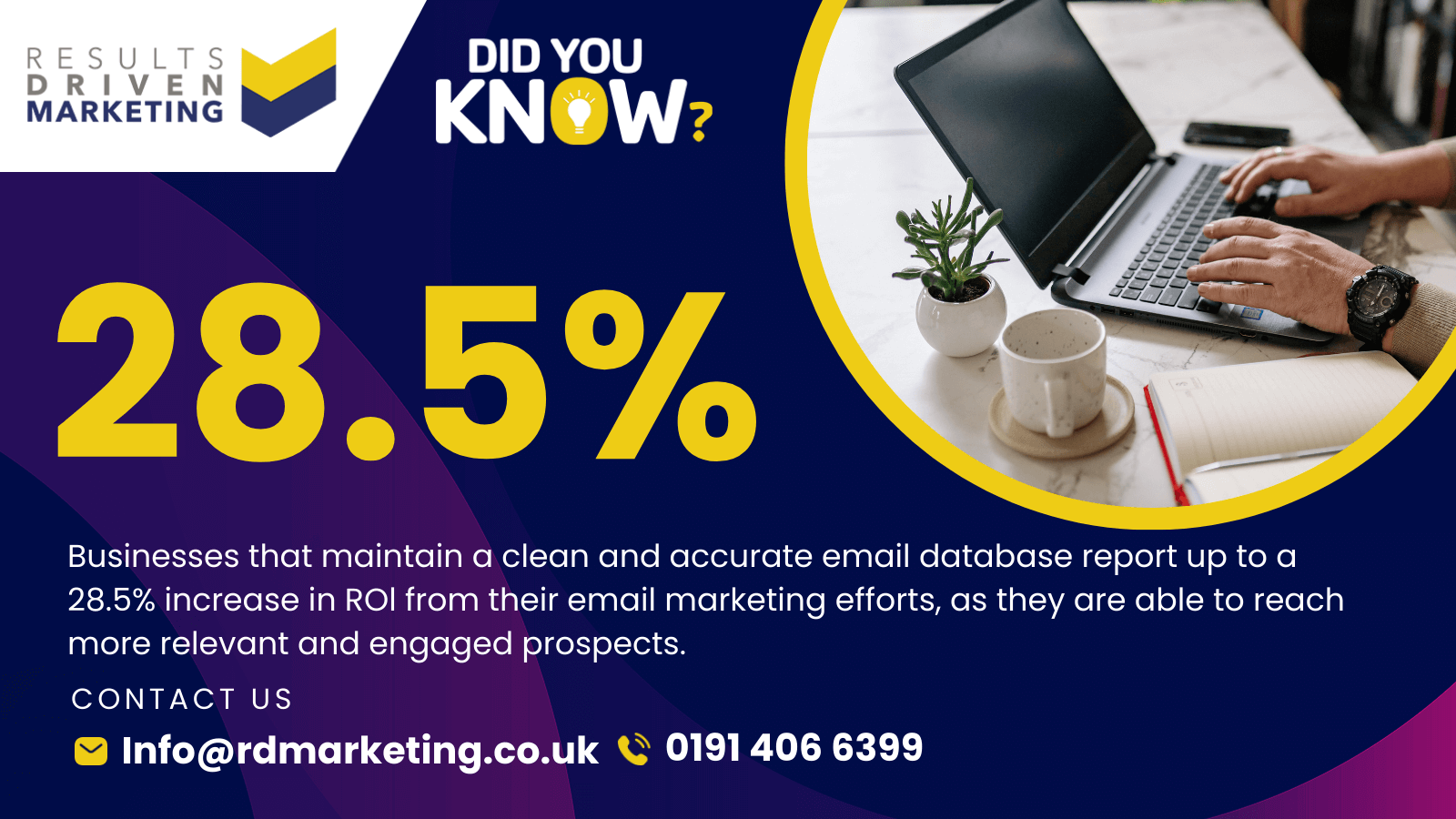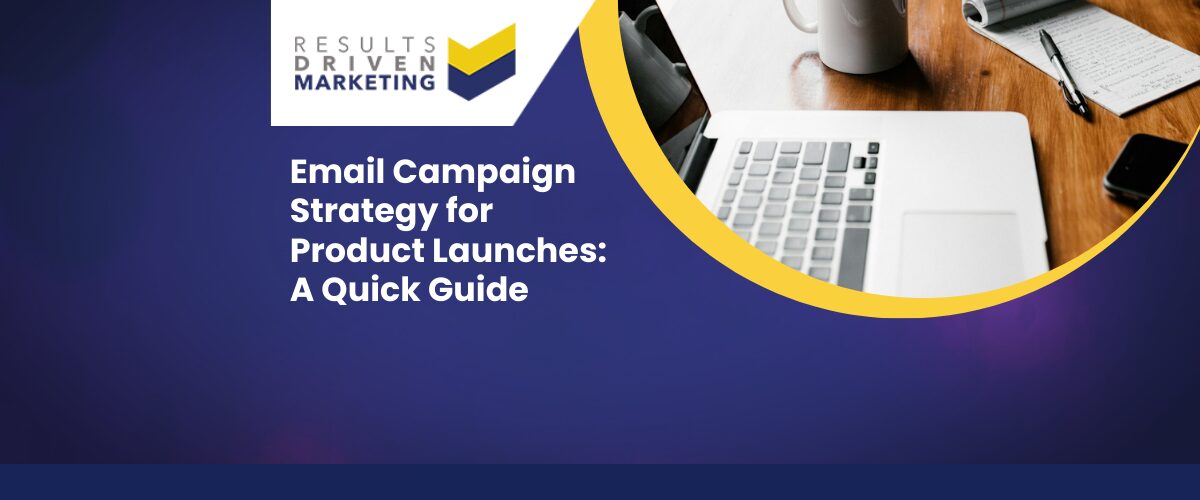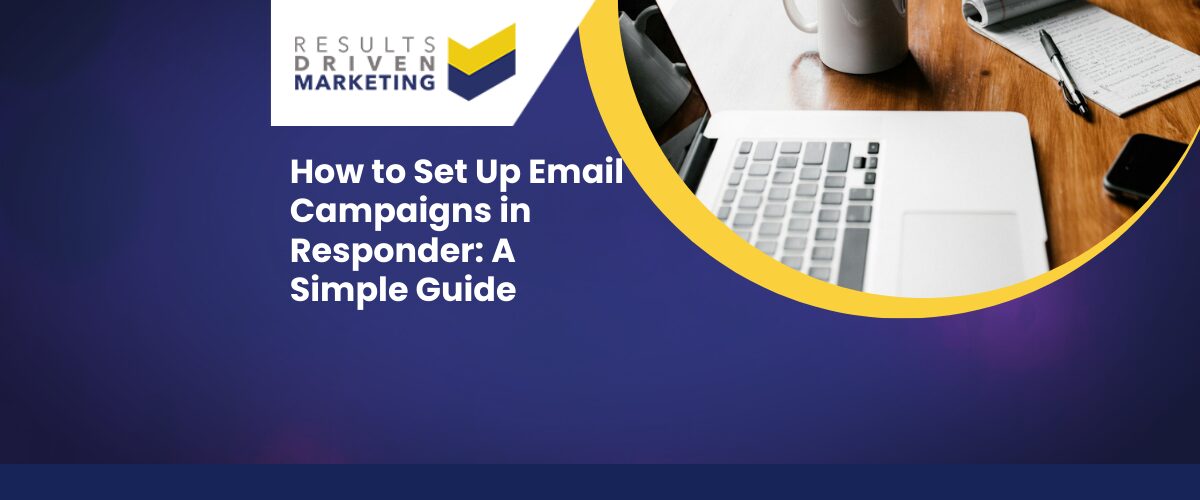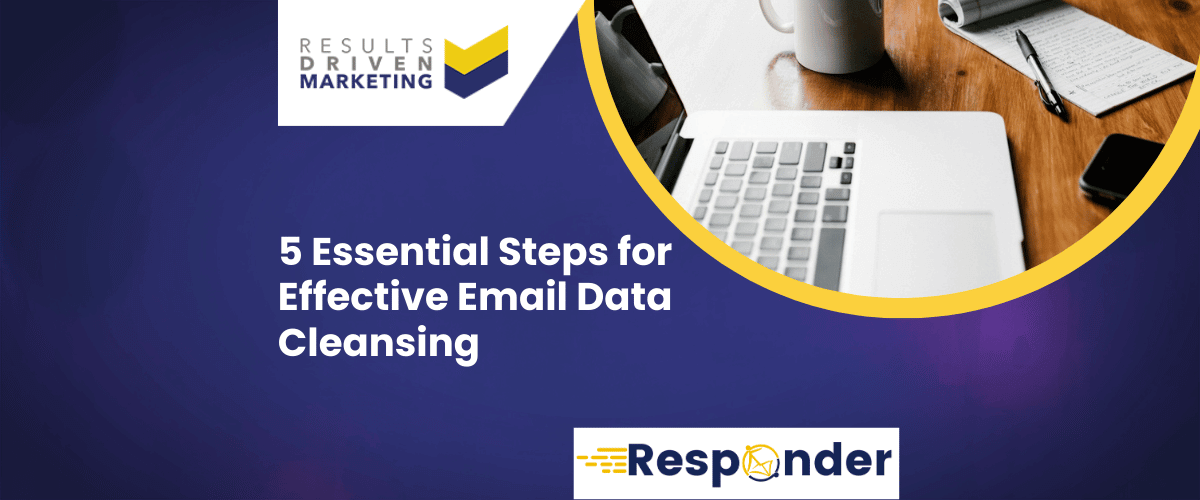
5 Essential Steps for Effective Email Data Cleansing
Email data cleansing is more important than ever to keep your email marketing efforts on point. Even though email marketing is still one of the best ways to connect with customers and boost conversions, everything hinges on the quality of your email list.
If you don’t keep it in check, your list can get messy with wrong or outdated info, which means fewer people opening your emails, more bounces, and deliverability issues. But don’t worry!
By adopting a solid email data cleansing strategy, you can tackle these problems head-on. In this easy-to-follow guide, we’ll walk you through five essential steps to optimise your email list with data cleansing, so you can get the most bang for your buck and keep your database clean, accurate, and up-to-date.
By the end of this article, you’ll know how to:
- Identify and remove invalid email addresses.
- Reduce bounce rates with data hygiene tools.
- Standardise email formats and verify domain authenticity.
- Segment your email list based on engagement.
- Leverage data enrichment services for deeper insights.
Table of contents:
Step 1: Identifying and Removing Invalid Email Addresses
Summary:
- What invalid email addresses are and why they harm your campaigns
- Tools to identify and remove invalid addresses
- The benefits of removing bad data
Invalid email addresses can be a significant barrier to achieving high engagement rates in your email marketing efforts. They often result in email bounces, which damage your sender reputation and lead to your emails being marked as spam. This is why the first step in email data cleansing is identifying and removing invalid addresses.
What Are Invalid Email Addresses?
Invalid email addresses fall into several categories, including:
- Hard bounces: These are emails sent to nonexistent domains or addresses.
- Syntax errors: These include typos, such as “gamil.com” instead of “gmail.com.”
- Role-based addresses: Emails sent to generic inboxes like info@domain.com can result in lower engagement rates.
How to Identify Invalid Emails
There are several tools available to help digital marketers identify invalid email addresses, such as NeverBounce and ZeroBounce. These services allow you to upload your email list, and they will return a cleaned list, removing any invalid addresses while verifying the rest.
Why This Matters
Removing bad data improves your email deliverability and reduces your bounce rate. A clean email list is more likely to engage with your campaigns, increasing your ROI.
According to HubSpot, businesses with a high-quality email list see up to 760% increase in revenue from email campaigns.
Explore our Email Address List Data Services for access to accurate and validated lists.
Step 2: Reducing Bounce Rates with Data Hygiene Tools
Summary:
- Definition of bounce rates and how they impact deliverability
- Tools to monitor and reduce bounce rates
- Maintaining list hygiene regularly
Bounce rates are a critical metric in determining the health of your email list. High bounce rates can lead to your emails being marked as spam, hurting your sender reputation. There are two types of bounces to be aware of: hard bounces and soft bounces.
Understanding Bounce Rates
- Hard bounces occur when an email is sent to an invalid, closed, or non-existent email address. These should be removed from your list immediately.
- Soft bounces happen when the recipient’s email server is temporarily unavailable, their inbox is full, or the message is too large.
Tools to Reduce Bounce Rates
Using data hygiene tools such as BriteVerify or EmailListVerify can help monitor and cleanse your list regularly, removing any addresses that could lead to bounces.
Regular Maintenance
Maintaining your email list isn’t a one-time task. Regularly checking for inactive or non-responsive email addresses can reduce your bounce rate and ensure your messages reach the right inboxes.
Consider using our Data Cleansing Services to regularly update and clean your email data.
Step 3: Standardising Email Formats and Verifying Domains
Summary:
- Importance of standardising email formats
- How domain verification ensures email validity
- Tools to automate these processes
Consistency in email formatting ensures that your database remains easy to manage and that emails are sent to the correct addresses. Moreover, domain verification plays a crucial role in ensuring that the email domains in your list are valid and active.
Standardising Email Formats
Formatting errors, such as typos or improper domain names, are common and can lead to undeliverable emails. Implementing rules for data entry and using tools to automatically correct errors can help minimise these issues.
Verifying Domains
Domain verification tools check whether a domain exists and if it’s configured to receive emails. Tools like Hunter.io or EmailListVerify can automate this process for large lists.
Automation Tools
Automation is key to keeping your email list clean and organised. By using domain verification tools, you can ensure that the emails you’re sending reach real users.
Our CTPS Checker can help you ensure that your database complies with legal requirements, further protecting your sender reputation.
Step 4: Segmenting Your Email List Based on Engagement
Summary:
- The benefits of email segmentation
- Methods to segment based on engagement
- Tools to automate segmentation
Segmentation is the practice of dividing your email list into smaller groups based on shared characteristics or behaviours, such as engagement. By segmenting your list, you can deliver more personalised and relevant content to your audience, improving open and conversion rates.
Why Segment Your List?
Segmenting your email list allows you to tailor your campaigns to different segments, such as:
- Highly engaged users who open and click on your emails regularly.
- Inactive users who haven’t opened your emails in months.
Personalising your email campaigns based on engagement levels has been shown to boost engagement rates by up to 760%, according to Campaign Monitor.
Tools to Segment Your List
Using tools like ActiveCampaign or Mailchimp, you can automate your list segmentation based on user engagement.
Learn how our Email Marketing Management Services can help you automate segmentation and boost engagement. You can do this with our Email Marketing Software called Responder.
Step 5: Leveraging Data Enrichment for Deeper Insights
Summary:
- What is data enrichment, and how it can enhance email campaigns
- Tools for enriching email data
- Benefits of enriched data in personalised marketing
Data enrichment allows you to supplement the information you already have about your contacts with additional, publicly available data. This can include social profiles, job titles, and company information, which can be used to create highly targeted and personalised email campaigns.
Benefits of Data Enrichment
By enriching your email list data, you can:
- Target specific decision-makers based on their job role.
- Send personalised content relevant to your audience’s industry or behaviour.
Tools for Enrichment
Platforms like Clearbit and FullContact can help enrich your email data, providing you with the insights necessary to craft highly personalised campaigns.
Our Data Enrichment Services can help you unlock the full potential of your email list.
In conclusion, email data cleansing is an essential practice for maintaining a high-performing email marketing strategy.
By removing invalid addresses, reducing bounce rates, standardising formats, segmenting your list, and enriching your data, you can improve your email deliverability and overall campaign performance. Implementing these five steps ensures that your email list remains clean, accurate, and ready to drive results.
If you’re looking to take your email marketing to the next level, consider our comprehensive Data Cleansing Services. Sign up for our newsletter, download our resources, and leave a comment with your questions or experiences.
What is Email Data Cleansing?
Let’s face it — no matter how much time and effort you put into building your email list, it won’t stay fresh forever. Over time, contacts become outdated, typos sneak in, and people change jobs or email providers. That’s where email data cleansing comes in.
So, what exactly is email data cleansing?
In simple terms, email data cleansing is the process of cleaning up your email list by identifying and removing incorrect, outdated, duplicated, or invalid email addresses. It also involves standardising data, verifying addresses, and filling in any gaps. The goal? To make sure your email campaigns actually reach the right people — and perform better because of it.
Think of it as spring cleaning, but for your CRM. A well-maintained list means fewer bounces, better engagement, and more accurate targeting.
Why does email data cleansing really matter?
If you’re running any kind of serious email marketing campaign, skipping email data cleansing is like throwing money into the wind. Here’s why it’s essential:
-
Improves Deliverability: Clean lists mean your emails are more likely to land in inboxes rather than spam folders.
-
Avoids Spam Traps: ISPs and anti-spam tools use old or fake email addresses to catch spammers. Hitting these can damage your sender reputation.
-
Reduces Bounce Rates: Bounced emails (especially hard bounces) tell email providers that you’re not maintaining your list properly. That’s a red flag.
-
Boosts Open and Click-Through Rates: Clean data equals better targeting. Better targeting leads to more opens and more clicks. Simple.
If you’re investing in email marketing management services or paid outreach, you want every email to count. Our own Email Marketing Software solution is designed to help maximise every send — and it works even better when paired with a cleansed email list.
Here’s the kicker — data decays, fast.
You might be surprised to learn that around 22.5% of email data decays every year. That’s right — nearly a quarter of your list could be outdated in just 12 months.
Why? People:
-
Change jobs
-
Switch providers
-
Abandon old email accounts
-
Mistype their addresses during sign-up
And if you’ve ever purchased a mailing list (which can be useful when done right — check out our email address list data), then cleansing is even more crucial. Old data = dead leads.
What happens if you don’t cleanse your data?
Neglecting email data cleansing can seriously hurt your marketing efforts. Here’s what’s at risk:
-
Wasted Spend: You’re literally paying to send emails to people who don’t exist or will never engage.
-
Deliverability Issues: High bounce rates and spam complaints reduce your ability to land in inboxes.
-
Reputation Damage: ISPs and email providers track how clean your data is. Poor hygiene can get you flagged or blacklisted.
-
Compliance Risks: Outdated or incorrect data can also increase your chances of violating privacy laws like GDPR or PECR.
Our data cleansing services are built to prevent exactly these problems, saving your team time and your campaigns from underperforming.
Need help sourcing reliable, accurate data from the get-go? Our B2B data and consumer data solutions come with quality guarantees — and we always recommend following up with regular cleansing as a best practice.
Conclusion
In conclusion, email data cleansing is an essential practice for maintaining a high-performing email marketing strategy.
By removing invalid addresses, reducing bounce rates, standardising formats, segmenting your list, and enriching your data, you can improve your email deliverability and overall campaign performance. Implementing these five steps ensures that your email list remains clean, accurate, and ready to drive results.
If you’re looking to take your email marketing to the next level, consider our comprehensive Data Cleansing Services. Sign up for our newsletter, download our resources, and leave a comment with your questions or experiences.
Who are we?
Dedicated to lead generation, Results Driven Marketing provides myriad services SMEs can trust to deliver results.
Our marketing lists are guaranteed accurate to industry high standards, and GDPR compliant and our experience team means that if you are looking to buy data, they make them totally bespoke and highly relevant whether you are looking for email lists, direct mailing lists or telemarketing lists.
Our email marketing software is highly rated. Responder provides the automation tools you need to put your marketing on autopilot.
We also supply email marketing solutions with our email marketing platform.
Call us today on 0191 406 6399 to discuss your specific needs.
Results Driven Marketing
info@rdmarketing.co.uk
0191 406 6399


